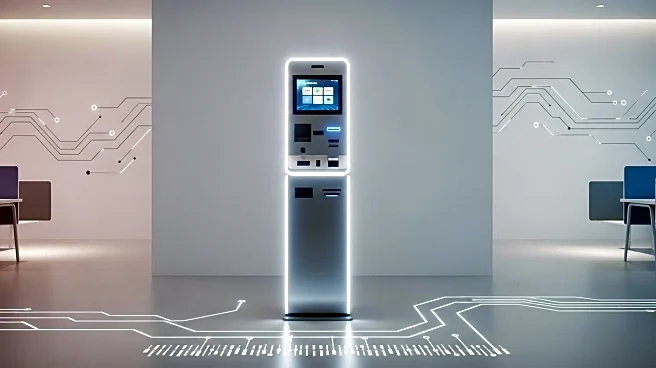What's Happening?
Amazon Pharmacy has launched in-office kiosks at select One Medical offices in Los Angeles, allowing patients to pick up prescriptions immediately after their medical appointments. This service aims to address the issue of unfilled prescriptions, which affects nearly one-third of patients annually in the U.S. The kiosks are designed to provide quick access to medications, reducing the need for separate pharmacy visits and improving medication adherence. Patients can order prescriptions via the Amazon app and pick them up within minutes, with the option to consult with an Amazon Pharmacy licensed pharmacist through secure video or phone.
Why It's Important?
The introduction of Amazon Pharmacy kiosks represents a significant innovation in healthcare delivery, potentially improving patient outcomes by ensuring timely access to medications. This service addresses the problem of pharmacy deserts and the inconvenience of separate pharmacy visits, which can lead to delayed treatments and increased healthcare costs. By integrating pharmacy services directly into medical offices, Amazon is enhancing the patient care experience and setting a new standard for convenience in healthcare.
What's Next?
Amazon plans to expand the kiosk service to additional One Medical offices and other locations, potentially increasing its impact on healthcare accessibility. As the service grows, it may prompt other healthcare providers and pharmacies to adopt similar models, leading to broader changes in how prescriptions are filled and accessed. The success of this initiative could also influence Amazon's future healthcare strategies and partnerships.
Beyond the Headlines
This development highlights the role of technology and logistics in transforming healthcare delivery. By leveraging its expertise in logistics, Amazon is addressing critical barriers to medication access and adherence. The kiosks also reflect a shift towards more patient-centered care, where convenience and immediacy are prioritized. This approach could lead to long-term improvements in healthcare outcomes and patient satisfaction.










